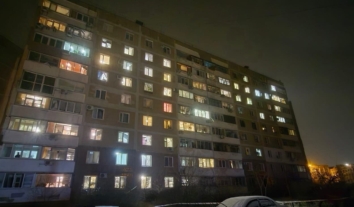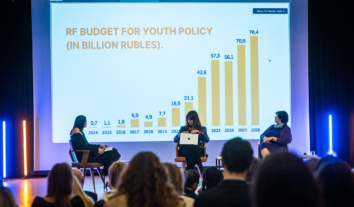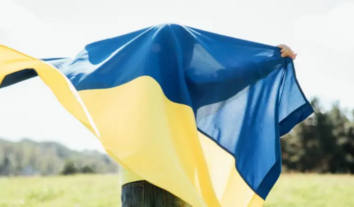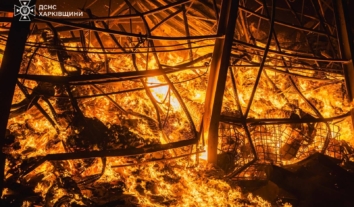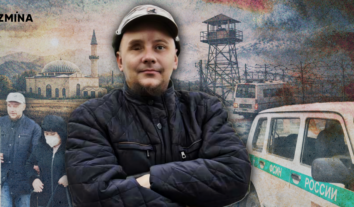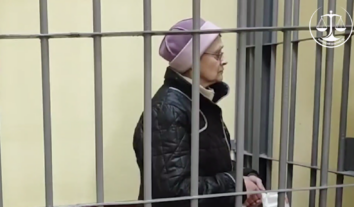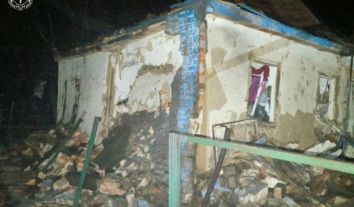Reintegration of youth from the occupied territories requires inter-agency coordination – Presidential Representative of Crimea
Children leaving temporarily occupied Crimea urgently need integration into Ukraine’s educational system, as stated by Denys Chistikov, Deputy Permanent Representative of the President in the Autonomous Republic of Crimea, on May 27 in Kyiv, during the presentation of the study “Ukrainian Language in Education in Temporarily Occupied Crimea: From Oblivion to Discrimination”.
 Illustrative photo from open sources
Illustrative photo from open sourcesThis research highlights the systematic assimilation of Ukrainians and the violation of their educational rights in the temporarily occupied territory (TOT) of the Autonomous Republic of Crimea. As part of the project, the study involved interviews with educators, experts, and internally displaced persons (IDPs) who provided testimonies on the development of Ukrainian education in Crimea before 2014 and since the peninsula’s temporary occupation.
The study’s authors assert that in occupied Crimea, the occupying power is implementing a deliberate policy of de-Ukrainization and assimilation of the Ukrainian population. One of the tools for this policy is the forced changes in the educational process. The destruction of the regional system of Ukrainian-language education and the modification of educational content have led to the suppression of Ukrainian political and cultural identity, exerting pressure on communities and individuals against a backdrop of widespread militarisation.
Based on the collected materials, five individuals have been notified of suspicion under Ukraine’s Criminal Code for treason and collaboration. The study’s authors have also provided law enforcement with information regarding an additional 26 individuals. In total, data on 50 people involved in the destruction of Ukrainian-language education in the occupied peninsula have been documented.
Denys Chistikov emphasised that the process of integrating children who have left the occupied territories requires special attention and coordination among state structures.
“The Representation is actively working in this direction, striving to involve other state bodies. We must be ready to integrate children arriving from Crimea into the Ukrainian environment as quickly as possible. These children are our future, and it is important not to lose them culturally and educationally,” he said.
The Deputy Presidential Representative also stressed the need for systematic preparation for the de-occupation of Ukrainian territories, particularly concerning education and language policy.
“This task is not just about returning territories. We must clearly understand what we will inherit after de-occupation: institutions that need to be restored, people who need to be returned to the Ukrainian environment, and, above all, education. We already see today the immense amount of work that needs to be done to prepare Ukrainian teachers and, indeed, to restore the Ukrainian language in liberated territories. Without language, there will be neither identity nor integration,” said Chistikov. Olha Kuryshko, the Presidential Representative of Ukraine in the Autonomous Republic of Crimea, also called on the Ukrainian authorities to implement elements of transitional justice before the de-occupation of Ukrainian territories.
Chistikov also drew attention to the destruction of the Ukrainian language in everyday life in the occupied territories as a key aspect of the Russian occupiers’ criminal policy.
“One of the areas we continue to investigate and document as part of our work is the deliberate and systematic destruction of the Ukrainian language in daily life in the TOT. This includes judicial persecutions for distributing Ukrainian music, literature, and for Ukrainian-language content found on phones, even among students. Holding accountable individuals, including ‘judges,’ who issue such verdicts is an important aspect of documenting the occupation regime’s crimes for us,” he reported.
Finally, the Deputy Presidential Representative highlighted recent manifestations of persecution in newly occupied territories. He noted a particularly alarming trend over the past year: an increase in cases related to alleged “discrimination” for using the Ukrainian language.
“In the newly occupied regions, we see that even the result of reviewing phones for Ukrainian-language content can become grounds for persecution. This is already a separate area of research that demands our attention, as it concerns a gross violation of fundamental rights – freedom of speech, freedom of cultural expression, and linguistic identity,” Chistikov pointed out.
Earlier, the Verkhovna Rada Commissioner for Human Rights stated in his annual report that the government has yet to implement a mechanism for verifying the knowledge and skills acquired by Ukrainian citizens under occupation. Furthermore, he criticised the reorganisation of the Ministry of Reintegration, believing that this government step worsened the protection of war victims.
Alena Lunova, Advocacy Director at the Human Rights Centre ZMINA, also asserted that the absence of a government body responsible for transitional justice and reintegration in Ukraine prevents effective preparation for future de-occupation and leads to chaotic work by various state structures. The human rights activist is convinced that the Cabinet of Ministers of Ukraine needs to create a specialised state body that would form a unified vision for the future of the TOT and coordinate transitional justice processes.

